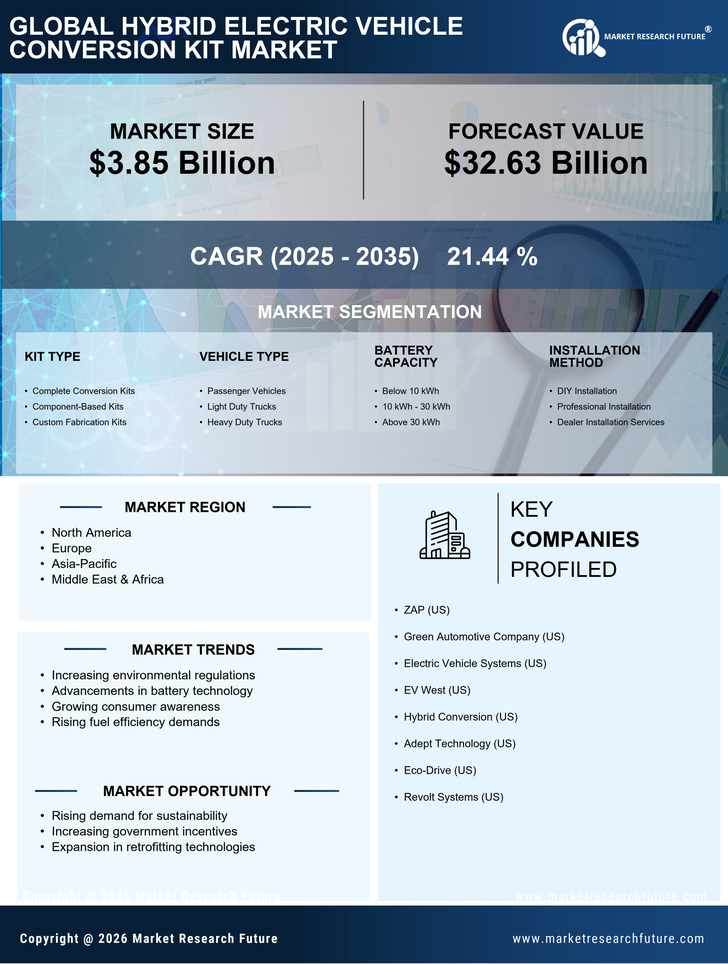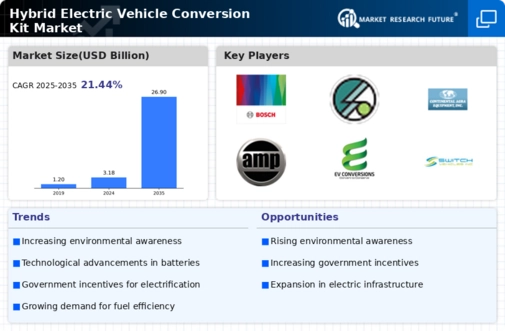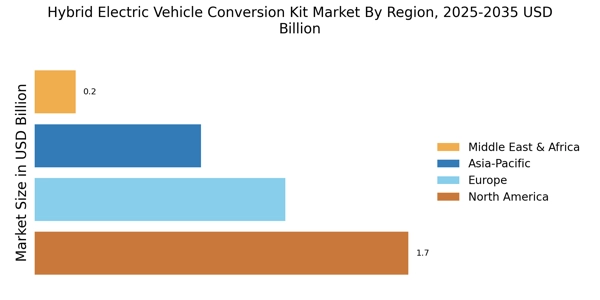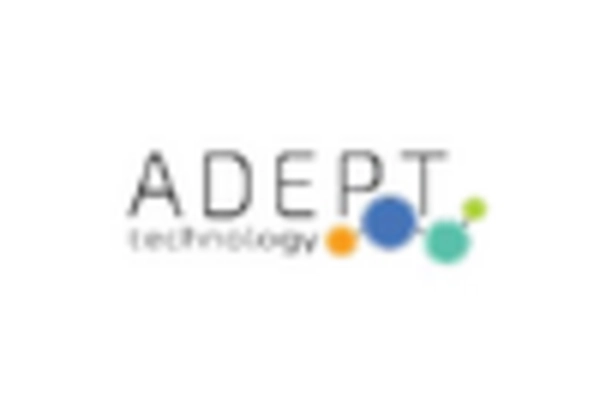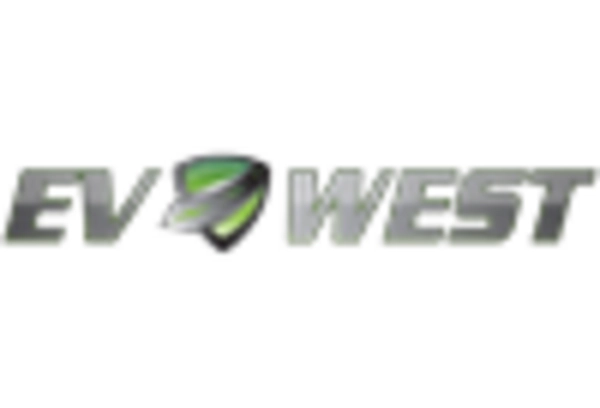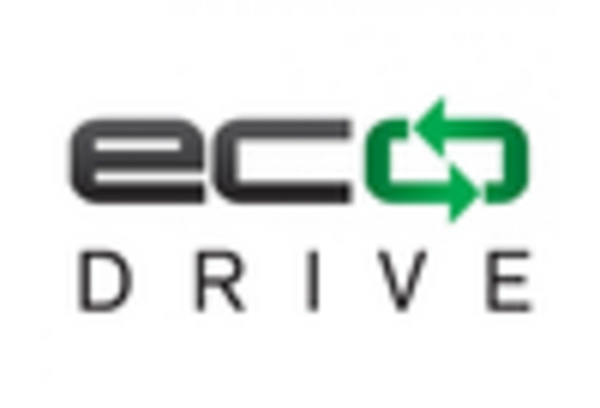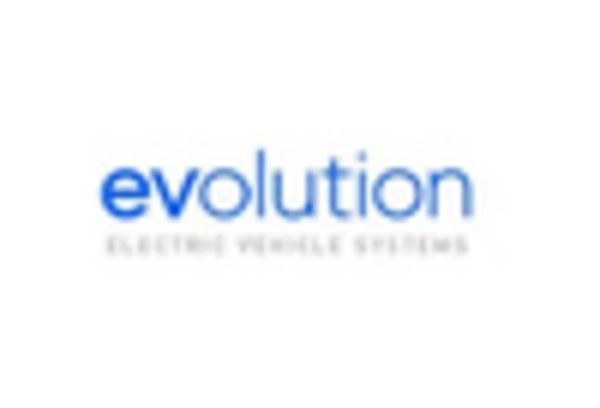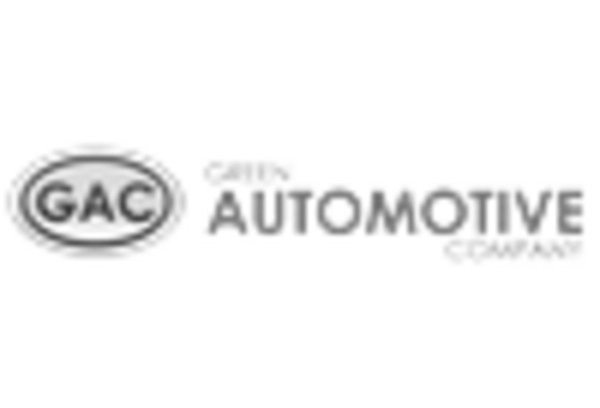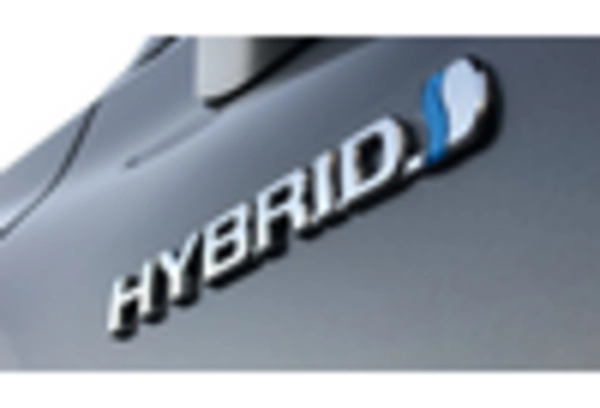Rising Environmental Concerns
The increasing awareness of environmental issues appears to drive the Hybrid Electric Vehicle Conversion Kit Market. As consumers become more conscious of their carbon footprints, the demand for eco-friendly transportation solutions intensifies. This shift is reflected in the growing number of individuals and businesses seeking to convert traditional vehicles into hybrid models. According to recent data, the market for hybrid electric vehicles is projected to grow at a compound annual growth rate of approximately 15% over the next five years. This trend suggests that the conversion kits will play a crucial role in facilitating this transition, as they offer a cost-effective means to reduce emissions and enhance fuel efficiency.
Economic Viability of Conversion Solutions
The economic benefits associated with hybrid electric vehicle conversion kits are becoming increasingly apparent, which may stimulate growth in the Hybrid Electric Vehicle Conversion Kit Market. With rising fuel prices and the potential for significant savings on fuel costs, consumers are more inclined to consider conversion kits as a practical investment. Data suggests that vehicle owners can save up to 30% on fuel expenses after converting to hybrid systems. This financial incentive, coupled with the decreasing costs of conversion technologies, indicates a promising outlook for the market. As more individuals recognize the long-term savings, the demand for conversion kits is likely to increase.
Regulatory Framework and Emission Standards
The evolving regulatory landscape surrounding vehicle emissions is influencing the Hybrid Electric Vehicle Conversion Kit Market. Stricter emission standards imposed by governments worldwide are compelling vehicle owners to seek alternative solutions to comply with these regulations. As cities and countries implement more rigorous policies aimed at reducing air pollution, the conversion to hybrid vehicles becomes a more attractive option. Recent reports indicate that regions with stringent emission regulations have seen a 25% increase in hybrid vehicle registrations, suggesting a direct correlation with the demand for conversion kits. This regulatory pressure is expected to continue driving the market as compliance becomes a priority for vehicle owners.
Technological Innovations in Conversion Kits
Technological advancements in the design and functionality of hybrid electric vehicle conversion kits are likely to propel the Hybrid Electric Vehicle Conversion Kit Market forward. Innovations such as improved battery management systems, lightweight materials, and enhanced energy efficiency are making conversion kits more appealing to consumers. Recent developments indicate that the efficiency of these kits has increased by nearly 20% in the last few years, making them a more viable option for vehicle owners. As manufacturers continue to invest in research and development, the market is expected to witness a surge in demand for these advanced conversion solutions, thereby expanding the overall market landscape.
Growing Interest in Sustainable Transportation
The rising interest in sustainable transportation solutions is likely to bolster the Hybrid Electric Vehicle Conversion Kit Market. As society shifts towards greener alternatives, the appeal of hybrid vehicles is becoming more pronounced. This trend is evident in the increasing number of initiatives promoting electric and hybrid vehicle adoption. Recent statistics show that hybrid vehicle sales have surged by over 30% in the past year, indicating a robust market for conversion kits. The growing consumer preference for sustainability, combined with the potential for reduced environmental impact, suggests that the conversion kit market will continue to thrive as more individuals seek to align their transportation choices with their values.
